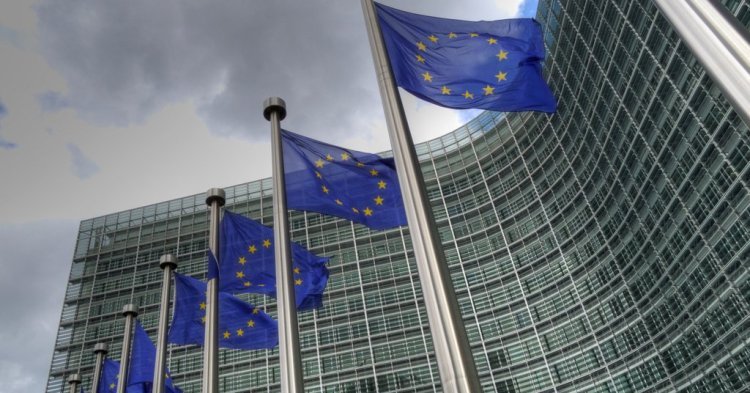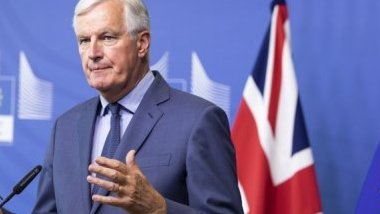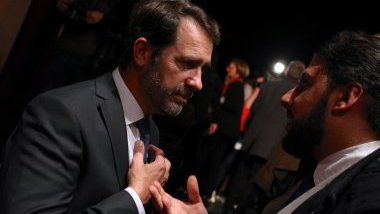Whether voters have a meaningful choice at the elections in May will depend on if national leaders respect the Spitzenkandidaten system, if the European Parliament as a whole continues to stand behind the process, and whether the parties successfully promote their lead candidates. However, it also depends on whether there are meaningful differences between these candidates. What issues do Weber and Timmermans, respectively, emphasise? What difference does it make if it’s one of them leading the Commission and not the other?
Manfred Weber: A conciliatory conservative
In the internal EPP election against Alexander Stubb, the Bavarian Manfred Weber represented the conservative wing of the party. Known as a compromise-seeking politician, Weber has adopted a less confrontational tone towards Viktor Orbán’s Hungarian Fidesz party, whose place within the EPP family is being disputed – although this September, Weber voted to launch Article 7 proceedings against the Hungarian government. In his selection as the EPP leader in the European Parliament, a post he has held since 2014, a contributing factor was that Weber was seen as a uniting, not divisive, character: in a 2016 profile, Politico Europe noted that Weber was not associated with austerity or federalism, two topics of controversy. On immigration, a key issue in the upcoming campaign, Weber has emphasised the management of the EU’s external borders, and supports the idea of funding North African countries in order for more claims to be processed outside Europe.
While Manfred Weber has the broad support of Christian Democratic parties across Europe, and his parliamentary work is acclaimed by insiders, he is scarcely the best-known EU politician. Critics also point out that Weber has no executive experience, as he has never been a minister. An energetic, media-savvy Alexander Stubb – who, unlike Weber, published a campaign manifesto ahead of the EPP election – might have been the better lead candidate for bringing soul to EU politics. Nevertheless, in a Politico interview last month, Weber did speak about the need of the Commission President to “reconnect” with ordinary Europeans by being physically present. This is something Weber has experience in, as he is known to keenly engage in chats with fellow residents in his home village of Wildenberg. At the EPP Congress, Manfred Weber easily convinced his fellow party members – now it’s time for him to convince the people.
Frans Timmermans: A rule-of-law champion and Juncker’s right-hand man
As First Vice-President and European Commissioner for Better Regulation, Inter-Institutional Relations, Rule of Law and the Charter of Fundamental Rights, Frans Timmermans is known as the face of the Commission’s fight to defend the principle of rule of law from the recent controversial policies of the conservative Polish government. His hard stance against Poland in the past year has at times put him at odds with Commission colleagues, including President Juncker himself. Timmermans has also played a key role in the Commission’s handling of the recent migration crisis and the Catalonian independence referendum, but was passed over for Michel Barnier to handle the Brexit negotiations.
Timmerman’s CV is extensive. Prior to joining the Commission, he was a member of the Dutch parliament, and served as the Minister for Foreign Affairs from 2012 to 2014 and State Secretary for European Affairs from 2007 to 2010. Multilingual and rhetorically skilled, he has been hailed as “arguably the EU’s best communicator of the 21st century.” At the same time, however, critics have cast doubt on Timmermans’s candidacy because his party at home, the Dutch Labour Party, is currently weak and was left in opposition at the 2017 elections.
The centre-left Dutchman is known for his social democratic ideals, including on welfare policy, and he is weary of relying too much on the self-regulation of markets. He recently stated in an interview with the Financial Times that fighting nationalism and protecting EU values will be his key priorities in the upcoming elections. PES President Sergei Stanishev has also promised that Timmermans “will put social justice, equality and sustainability at the heart of our electoral programme”->https://www.pes.eu/en/news-events/news/detail/PES-unites-behind-Timmermans-as-Lead-Candidate-for-2019-European-elections/#]. Moreover, Timmermans is known to have championed the four freedoms and supported fairer taxation rules for multi-nationals, while also wanting to make sure that the Eurozone’s debt and deficit rules are respected by member states.
Two ”establishment” candidates facing challenges ahead
Both candidates have emphasised the importance of protecting European values at this election. Of the two, Timmermans has been more insistent on this issue, notably in his work on rule of law in Poland. The fact that Viktor Orbán’s Fidesz is a member of the EPP family has admittedly complicated matters for Weber, though Weber and Alexander Stubb’s differences displayed that Weber is not the toughest of EPP politicians on this issue. As the social democrats continue to accuse the EPP and Weber of being too lenient on Hungary, it’s clear that the issue remains a major point of contention between the two parties. After the elections, it will be interesting to see if any further conflict on this topic will emerge within the ‘grand coalition’ of the EPP and PES which dominates EU politics.
Another important and potentially decisive difference between the two candidates is their relationship with the European Council. As stated above, Weber is a well-known MEP, but has never served as prime minister or held a government position. This will be seen as a shortcoming by the national leaders in the European Council, who have always preferred to pick a Commission president from among their own ranks. All previous Commission presidents have at least served as government ministers. For a European Council eager to maintain control of the selection process in the face of an increasingly ambitious European Parliament, picking a parliamentary insider such as Weber may not be tempting. On the other hand, Timmerman’s Article 7 “crusade” has hardly won him many fans among the right-wing governments of Eastern Europe represented in the European Council, nor among the Eurosceptics who are likely to constitute a substantial portion of MEPs after the election.
However, if a majority of MEPs are committed to the Spitzenkandidaten process and are ready to force the European Council’s hand, the European Council has little choice but to nominate a politician who stood as a lead candidate. At the same time, the Eurosceptics in the Parliament, if left in a minority, would fail in their mission to sabotage the process.
Another potentially serious obstacle for the EPP and PES candidates is the fact that the liberal ALDE party has refused to support the Spitzenkandidaten process by not nominating a single lead candidate, choosing instead to put forward a list of up to nine representatives. ALDE in cooperation with Emmanuel Macron’s La République En Marche are claiming that this is a more democratic option than the Spitzenkandidaten system, which they argue favours big “establishment” parties like the EPP.
Consequently, the first job of both EPP and PES candidates is to ensure that the Spitzenkandidaten process prevails, despite flagging support even from within the European Parliament itself. A visible, engaging campaign from both Weber and Timmermans, as well as those from other parties like the Greens, whose nomination is still to be confirmed, will be to the advantage of European democracy. Clear and differentiated manifestos that concretely show what the parties represent and where they differ are arguably also of the utmost importance. At its best, this contest is a golden opportunity to show Europeans that there exists a meaningful choice between different kinds of pro-Europeans, and not only between pro-Europeans and anti-Europeans.









Follow the comments: |
|
